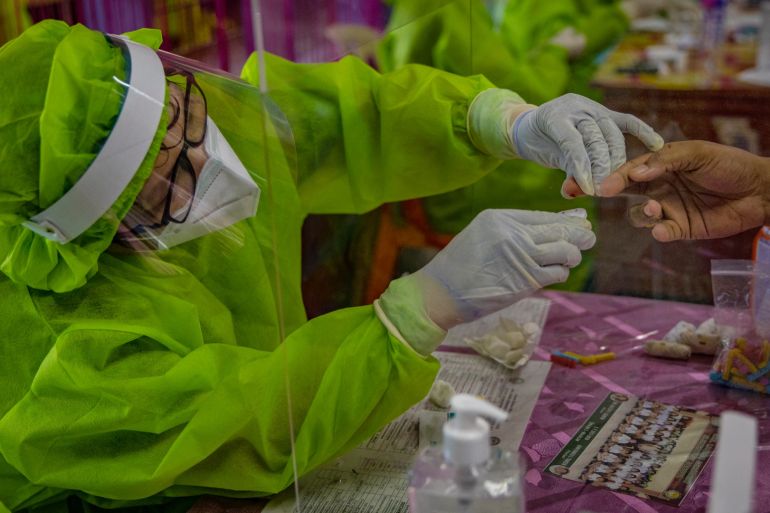Doctor’s Note: What are serology tests and do they work?
Some countries are using serological, or antibody, tests to check past infections and immune status.

Last month, the World Health Organization (WHO) issued a warning to countries that were giving out “immunity passports” to people who had had the COVID-19 infection and were tested for antibodies for it. The idea behind these passports was that those with “immunity” could travel for work purposes and be protected against reinfection.
In its statement, the WHO said: “At this point in the pandemic, there is not enough evidence about the effectiveness of antibody-mediated immunity to guarantee the accuracy of an ‘immunity passport’ or ‘risk-free certificate’. People who assume that they are immune to a second infection because they have received a positive test result may ignore public health advice. The use of such certificates may therefore increase the risks of continued transmission.”
Keep reading
list of 4 itemsLong COVID, rest, and helping our immune systems recover
Tumours disappear in all participants of small cancer drug trial
Can new Omicron subvariants evade vaccine immunity?
As the same time, there have been reports of people in China and Italy being infected a second time by the coronavirus.
Despite this, Chile said last week it would give out “health passports” to people who are deemed to have recovered from the illness.
Antibodies hold the key to getting us out of this global pandemic. They will either be acquired through infection or through effective vaccination.
What is an antibody?
Antibodies are proteins found in the blood that help recognise an infection and stimulate an immune response to fight it.
A person usually needs to have been exposed to the bug causing the infection to produce antibodies to it. This may be through illness or a vaccine.
These antibodies lie dormant until the bug is encountered again. They then respond much more rapidly, often without the person even realising they have caught the bug or becoming ill with it.
Antibodies are detectable in the blood usually about two weeks after an infection of COVID-19.
Serological testing
Antibody testing kits, also known as serological tests, are being used by some countries to look for the presence of these antibodies in blood samples taken through a finger prick test.
Serology tests are important if we are to understand the true epidemiology of the disease and its spread in populations. Countries such as Singapore have used them extensively to help monitor and control their outbreaks.
These tests are also useful for those who may not have had any symptoms of the coronavirus and would not have been tested in any other way.
Current research has shown that antibodies persist for at least four weeks, and are useful at detecting past infections which nasal or throat swabs simply cannot.
Accuracy vs false negatives
Countries have been ordering the tests en masse and using them to check past infection and the immune status of their populations.
However, there is also a debate going on about the accuracy of these tests, with some experts saying lab blood tests are more reliable than finger prick tests for antibody testing.
Some scientists believe false negative results may be an issue with finger prick tests – this means the test could tell a person they do not have the illness when in fact they might. It is worth bearing in mind that these tests will most often be administered by the infected person themself, who may not have the ability to read the results properly.
Reliability is the most important part of a test. It has to be able to test positive for those who have had the illness and now have antibodies to COVID-19, and also test negative for those who do not have the antibodies.
An error either way could be disastrous for keeping infection numbers down. People may be reassured that they have already had the disease and are immune to it, and therefore may not adhere to guidelines around social distancing, inadvertently spreading the virus again.
Understanding the past, predicting the future
Several studies have shown that those who have had COVID-19 have developed antibodies to the virus. However, some studies show that not everyone develops the same level of antibodies to the virus after infection. This may be due to a number of reasons; age, underlying health conditions, nutritional status and general fitness levels all play a role in how strong a person’s immune system is.
A Chinese study looking at the immune response to the coronavirus after infection demonstrated differing levels of these neutralising antibodies required to fight the virus: 10 of the 175 people they tested had almost undetectable levels of the antibodies.
This led to the WHO issuing caution against assuming immunity to the virus after an infection, with their statement continuing: “As of 24 April 2020, no study has evaluated whether the presence of antibodies to SARS-CoV-2 [the virus that causes COVID-19] confers immunity to subsequent infection by this virus in humans.”
It is important to note that the WHO is supportive of countries using antibody testing as it will help with evaluating risks and understanding the spread of the disease. But it has stressed that the tests will not determine whether a person is immune to a second infection.
Although swab testing will still be vital for identifying an acute or current infection, as the coronavirus pandemic continues to spread and cases accumulate, serological testing and data will prove increasingly important to understand the pandemic’s past and to predict its future.
While testing for active infections, both through nasal and throat swabs and blood tests for antibodies, is a key part of understanding the global pandemic, we have yet to see conclusive proof that the presence of antibodies will confer immunity. This is still a new and developing disease and more research is needed.